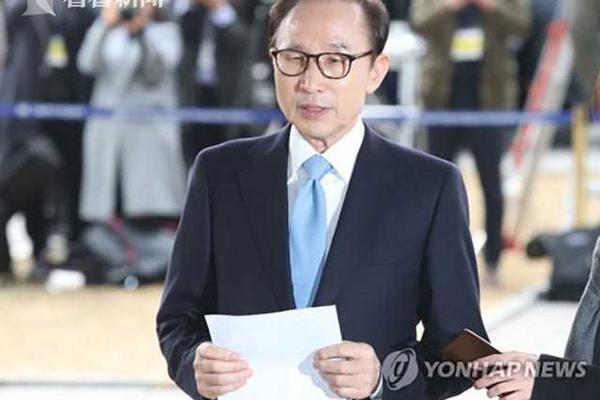
1. The five functions of the operating system are processor management, memory management, device management, file management and job management. Processor management The most basic function of processor management is to process interrupt events. After configuring the operating system, various events can be processed.
2. The main function of the computer operating system is process management, and its work is mainly process scheduling. In the case of a single user and a single taskNext, the processor is only monopolized by one user's task, and the process management work is very simple.
3. Operating System (abbreviation: OS) is a group of interrelated system software programs that supervise and control computer operation, use and run hardware, software resources and provide public services to organize user interaction.
4. Five major management functions of the operating system: (1) Job management: including tasks, interface management, human-computer interaction, graphical interface, voice control and virtual reality, etc. ( 2) File management: also known as information management. ( 3) Storage management: The essence is the management of storage "space", which mainly refers to the management of the main memory.
Any information system has five basic functions, namely: information collection and recording (input); information storage; information processing; information transmission; information output .
According to the functional introduction of the information system, the information system has five basic functions: input, storage, processing, output and control. Different functions have different functions, such as input function: the input function of the information system is determined by the purpose to be achieved by the system, the ability of the system and the permission of the information environment.
Five basic functions of the information system: input, storage, processing, output and control. Input function: The input function of the information system is determined by the purpose to be achieved by the system, the ability of the system and the permission of the information environment.Storage function: Storage function refers to the ability of the system to store various information and data. Mainly including: statistical functions.
The operating system has five functions: processor management: mainly controls and manages the work of the CPU. Storage management: mainly allocate and manage memory. Device management: mainly manage basic input and output devices. File management: responsible for the organization, storage, operation and protection of computer files.
The functions of the computer operating system include: processor management, memory management, device management, file management, job management and other functional modules. Processor management. The most basic function of processor management is to handle interrupt events. The processor can only detect interrupt events and generate interrupts and cannot process them.
The main function of the computer operating system is process management, and its main work is process scheduling. In the case of a single user and a single task, the processor is only monopolized by one user's task, and the work of process management is very simple.
The main functions of the operating system are process and processor management, job management, storage management, device management and file management, as follows: process and processor management. Because the execution of the program must rely on the processor, only one program flow can be processed and executed at any time. Homework management.
I) Processor management The most basic function of processor management is to handle interrupt events. The processor can only detect interrupt events and generate interrupts, and cannot handle these interrupt events. After configuring the operating system, all types of events can be handled.Another function of processor management is processor scheduling.
Five management functions of the operating system: job management: including tasks, interface management, human-computer interaction, graphical interface, voice control and virtual reality, etc. File management: also known as information management. Storage management: The essence is the management of storage "space", which mainly refers to the management of the main memory.

The storage management function of the operating system is to manage memory resources. It mainly realizes memory allocation and recovery, storage protection and memory expansion. The device management of the device management operating system is responsible for allocating and recycling external devices, and controlling external devices to operate according to the requirements of user programs.
The functions of the computer operating system include: processor management, memory management, device management, file management, job management and other functional modules. Processor management. The most basic function of processor management is to handle interrupt events. The processor can only detect interrupt events and generate interrupts and cannot process them.
The five functions of the operating system are processor management, memory management, device management, file management and job management.Processor management The most basic function of processor management is to process interrupt events. After configuring the operating system, various events can be processed.
Casino free 100 no deposit-APP, download it now, new users will receive a novice gift pack.
1. The five functions of the operating system are processor management, memory management, device management, file management and job management. Processor management The most basic function of processor management is to process interrupt events. After configuring the operating system, various events can be processed.
2. The main function of the computer operating system is process management, and its work is mainly process scheduling. In the case of a single user and a single taskNext, the processor is only monopolized by one user's task, and the process management work is very simple.
3. Operating System (abbreviation: OS) is a group of interrelated system software programs that supervise and control computer operation, use and run hardware, software resources and provide public services to organize user interaction.
4. Five major management functions of the operating system: (1) Job management: including tasks, interface management, human-computer interaction, graphical interface, voice control and virtual reality, etc. ( 2) File management: also known as information management. ( 3) Storage management: The essence is the management of storage "space", which mainly refers to the management of the main memory.
Any information system has five basic functions, namely: information collection and recording (input); information storage; information processing; information transmission; information output .
According to the functional introduction of the information system, the information system has five basic functions: input, storage, processing, output and control. Different functions have different functions, such as input function: the input function of the information system is determined by the purpose to be achieved by the system, the ability of the system and the permission of the information environment.
Five basic functions of the information system: input, storage, processing, output and control. Input function: The input function of the information system is determined by the purpose to be achieved by the system, the ability of the system and the permission of the information environment.Storage function: Storage function refers to the ability of the system to store various information and data. Mainly including: statistical functions.
The operating system has five functions: processor management: mainly controls and manages the work of the CPU. Storage management: mainly allocate and manage memory. Device management: mainly manage basic input and output devices. File management: responsible for the organization, storage, operation and protection of computer files.
The functions of the computer operating system include: processor management, memory management, device management, file management, job management and other functional modules. Processor management. The most basic function of processor management is to handle interrupt events. The processor can only detect interrupt events and generate interrupts and cannot process them.
The main function of the computer operating system is process management, and its main work is process scheduling. In the case of a single user and a single task, the processor is only monopolized by one user's task, and the work of process management is very simple.
The main functions of the operating system are process and processor management, job management, storage management, device management and file management, as follows: process and processor management. Because the execution of the program must rely on the processor, only one program flow can be processed and executed at any time. Homework management.
I) Processor management The most basic function of processor management is to handle interrupt events. The processor can only detect interrupt events and generate interrupts, and cannot handle these interrupt events. After configuring the operating system, all types of events can be handled.Another function of processor management is processor scheduling.
Five management functions of the operating system: job management: including tasks, interface management, human-computer interaction, graphical interface, voice control and virtual reality, etc. File management: also known as information management. Storage management: The essence is the management of storage "space", which mainly refers to the management of the main memory.

The storage management function of the operating system is to manage memory resources. It mainly realizes memory allocation and recovery, storage protection and memory expansion. The device management of the device management operating system is responsible for allocating and recycling external devices, and controlling external devices to operate according to the requirements of user programs.
The functions of the computer operating system include: processor management, memory management, device management, file management, job management and other functional modules. Processor management. The most basic function of processor management is to handle interrupt events. The processor can only detect interrupt events and generate interrupts and cannot process them.
The five functions of the operating system are processor management, memory management, device management, file management and job management.Processor management The most basic function of processor management is to process interrupt events. After configuring the operating system, various events can be processed.
App to watch Champions League live free
author: 2025-01-10 11:36App to watch Champions League live free
author: 2025-01-10 11:13 UEFA Champions League standings
UEFA Champions League standings
911.74MB
Check DigiPlus stock
DigiPlus stock
213.26MB
Check Hearthstone Arena class tier list 2024
Hearthstone Arena class tier list 2024
194.62MB
Check PAGCOR online casino free 100
PAGCOR online casino free 100
665.69MB
Check LR stock price Philippines
LR stock price Philippines
144.26MB
Check LR stock price Philippines
LR stock price Philippines
988.76MB
Check DigiPlus stock
DigiPlus stock
396.57MB
Check UEFA TV
UEFA TV
415.11MB
Check Arena plus APK
Arena plus APK
666.65MB
Check Casino Plus app
Casino Plus app
919.93MB
Check Hearthstone deck
Hearthstone deck
819.63MB
Check Casino Plus app
Casino Plus app
762.74MB
Check Bingo Plus stock
Bingo Plus stock
176.43MB
Check UEFA EURO
UEFA EURO
185.86MB
Check PAGCOR online casino free 100
PAGCOR online casino free 100
727.43MB
Check UEFA Champions League live streaming free
UEFA Champions League live streaming free
668.16MB
Check Casino free 100 no deposit
Casino free 100 no deposit
938.28MB
Check Casino free 100 no deposit
Casino free 100 no deposit
524.16MB
Check European Cup live
European Cup live
975.97MB
Check UEFA EURO
UEFA EURO
432.99MB
Check Europa League app
Europa League app
361.94MB
Check Free sports events uefa champions league app android
Free sports events uefa champions league app android
179.29MB
Check Casino Plus login register
Casino Plus login register
872.78MB
Check LR stock price Philippines
LR stock price Philippines
265.19MB
Check UEFA live free
UEFA live free
253.35MB
Check Hearthstone deck
Hearthstone deck
142.57MB
Check Casino Plus login register
Casino Plus login register
749.99MB
Check Hearthstone arena
Hearthstone arena
133.29MB
Check Bingo Plus
Bingo Plus
463.71MB
Check Europa League app
Europa League app
543.27MB
Check App to watch Champions League live free
App to watch Champions League live free
395.17MB
Check Hearthstone Arena Tier List
Hearthstone Arena Tier List
913.68MB
Check UEFA live free
UEFA live free
469.96MB
Check UEFA Europa League
UEFA Europa League
213.65MB
Check UEFA Champions League standings
UEFA Champions League standings
964.55MB
Check Hearthstone arena class win rates reddit
Hearthstone arena class win rates reddit
443.55MB
Check
Scan to install
Casino free 100 no deposit to discover more
Netizen comments More
2420 UEFA Champions League live streaming app
2025-01-10 11:12 recommend
1534 Champions League
2025-01-10 11:02 recommend
1176 UEFA EURO
2025-01-10 10:55 recommend
1305 UEFA Champions League live
2025-01-10 10:46 recommend
1198 DigiPlus fair value
2025-01-10 10:37 recommend